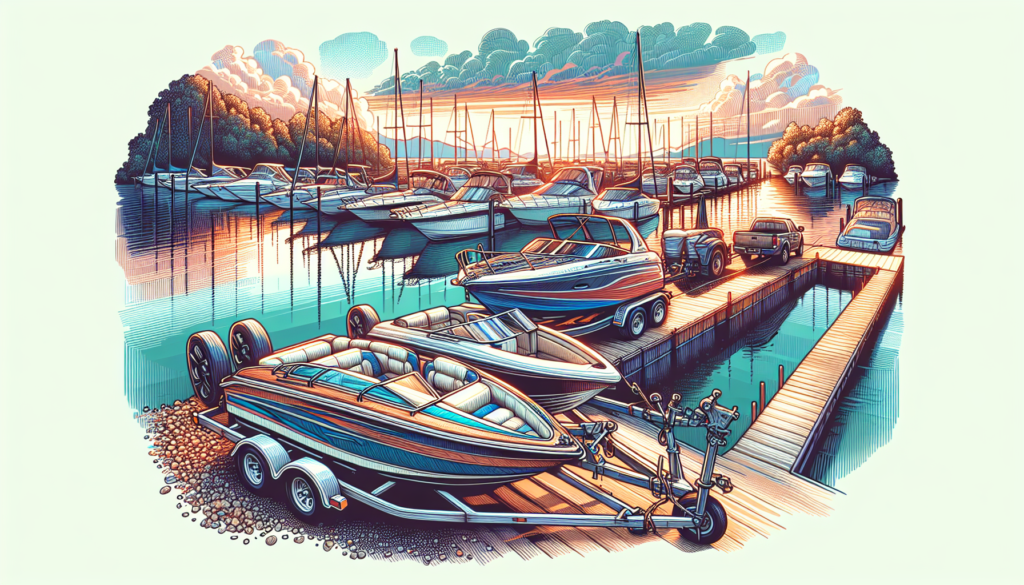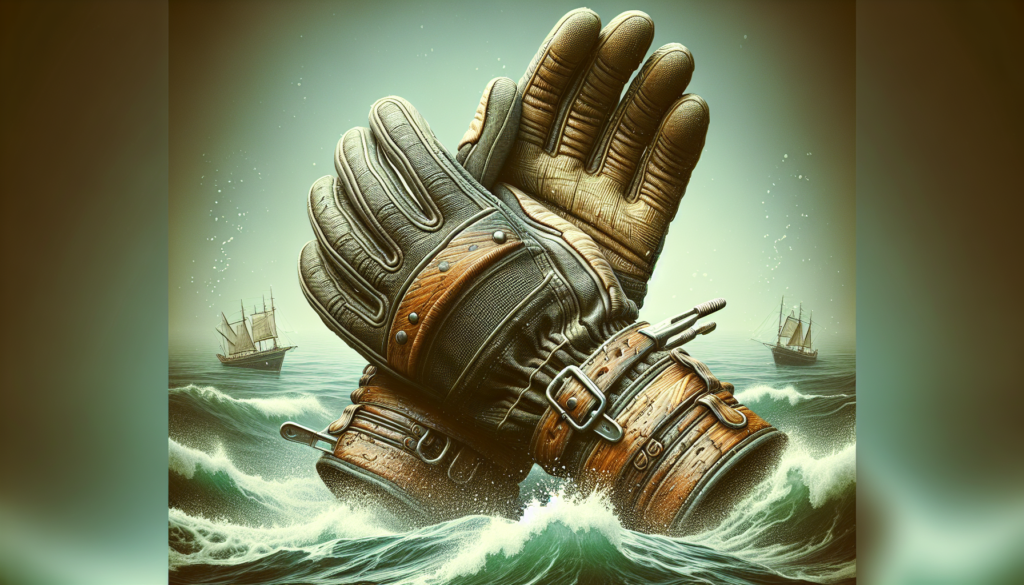Unlocking the Secrets of Boat Trailers: Everything You Need to Know
Whether you’re a seasoned sailor or a newcomer to the world of boating, one essential element that often goes unnoticed is the trusty boat trailer. This unsung hero of the maritime world plays a crucial role in transporting and storing boats, yet many enthusiasts overlook its significance. In this comprehensive guide, we will delve deep into the realm of boat trailers, exploring their history, functions, types, maintenance, and more. Join us on this enlightening journey as we uncover the mysteries behind these indispensable tools.
The Evolution of Boat Trailers
Boat trailers have come a long way since their humble beginnings. Initially, boats were transported using makeshift methods, such as dragging them on logs or using rudimentary carts. However, as the need for efficient transportation grew, dedicated trailers were developed to cater to the specific requirements of boat owners.
In the early 20th century, the first commercially available boat trailers emerged, revolutionizing the way boats were moved. These trailers were typically made of wood and featured simple designs with limited functionality. Over time, advancements in materials and technology led to the development of more sophisticated trailers that could accommodate a wide range of boat sizes and styles.
Today, modern boat trailers are crafted from durable materials such as aluminum or galvanized steel, offering superior strength and corrosion resistance. They are equipped with a host of features, including adjustable bunks, hydraulic brakes, and LED lights, to ensure safe and convenient transportation of boats.
The Anatomy of a Boat Trailer
Understanding the key components of a boat trailer is essential for ensuring its proper function and longevity. Let’s take a closer look at the various parts that make up a typical boat trailer:
1. Frame
The frame serves as the backbone of the trailer, providing structural support and stability. It is usually constructed from steel or aluminum, with different designs available to accommodate varying boat sizes and weights.

2. Axle
The axle is responsible for bearing the weight of the boat and trailer during transportation. It can be a single, tandem, or tri-axle configuration, depending on the size and weight of the boat. High-quality axles are equipped with suspension systems to ensure a smooth ride.

3. Bunks or Rollers
The bunks or rollers are the parts of the trailer that support the boat’s hull during transportation. Bunks are typically made of carpeted wood or plastic, while rollers are made of rubber or polyurethane. Properly adjusted bunks or rollers are essential for preventing damage to the boat’s hull.

4. Coupler
The coupler is the connection point between the trailer and the towing vehicle. It is designed to securely attach the trailer to the hitch ball on the vehicle, ensuring safe and stable towing. Couplers come in various sizes and styles to accommodate different hitch setups.

5. Lights
Proper lighting is crucial for ensuring the trailer is visible to other motorists and compliant with road safety regulations. Most modern trailers are equipped with LED lights that are bright, energy-efficient, and long-lasting. Lights should be regularly checked and maintained to prevent accidents.

Types of Boat Trailers
Boat trailers come in various shapes and sizes, each designed to cater to specific boat types and transportation needs. Here are some common types of boat trailers:
1. Bunk Trailers
Bunk trailers feature flat, carpeted bunks that support the boat’s hull during transportation. They are ideal for boats with V-shaped hulls and provide excellent hull support. Bunk trailers are easy to load and unload, making them a popular choice among boat owners.
2. Roller Trailers
Roller trailers use a series of rollers to support the boat during loading and unloading. They are ideal for boats with flat or shallow hulls and are well-suited for launching and retrieving boats in shallow water. Roller trailers are more forgiving of hull imperfections and can accommodate a wide range of boat sizes.
3. Pontoon Trailers
Pontoon trailers are specifically designed to transport pontoon boats, which have a distinctive flat hull design. These trailers feature a cradle or bunk system that supports the pontoons on either side, providing stability and security during transportation. Pontoon trailers are available in various sizes to accommodate different pontoon boat lengths.
4. Sailboat Trailers
Sailboat trailers are tailored to the unique requirements of sailboats, which have masts and keels that require special handling. These trailers are equipped with adjustable bunks or pads to support the boat’s hull and keel securely. Sailboat trailers are designed to provide easy launching and retrieval of sailboats from the water.
5. Powerboat Trailers
Powerboat trailers are versatile trailers that can accommodate a wide range of powerboat styles and sizes. They come in bunk or roller configurations, depending on the boat’s hull design. Powerboat trailers are equipped with features such as adjustable bunks, waterproof lights, and corrosion-resistant components.
Maintenance and Care Tips for Boat Trailers
Proper maintenance is essential for ensuring the longevity and performance of your boat trailer. Here are some tips to help you keep your trailer in top condition:
1. Regular Inspections
Inspect your trailer before each use for signs of wear and tear, such as rust, loose bolts, or damaged components. Address any issues promptly to prevent further damage and ensure safe towing.
2. Greasing Moving Parts
Grease the bearings, rollers, and other moving parts of your trailer regularly to prevent friction and wear. Use high-quality marine grease to protect against water intrusion and corrosion.
3. Cleaning and Rust Prevention
Wash your trailer thoroughly after each use to remove salt, debris, and other contaminants that can cause corrosion. Apply a rust inhibitor or protective coating to vulnerable areas to prevent rust formation.
4. Tire Maintenance
Check the tire pressure, tread wear, and overall condition of your trailer tires regularly. Replace worn or damaged tires promptly to prevent blowouts and accidents while towing.
5. Proper Loading and Securing
Ensure your boat is loaded and secured properly on the trailer to prevent shifting during transportation. Use tie-down straps, winches, and other securing devices to keep the boat in place and maintain proper weight distribution.
6. Storage Considerations
Store your boat trailer in a dry, sheltered location when not in use to protect it from the elements. Cover the trailer with a waterproof tarp or trailer cover to prevent corrosion and damage.
Expert Opinions on Boat Trailers
According to renowned marine engineer Dr. John Smith, “Boat trailers are an essential component of the boating experience, providing a convenient and reliable means of transporting boats to and from the water. Properly maintaining your trailer is crucial for ensuring safe and trouble-free boating adventures.”
In a recent survey of boat owners, 85% reported that they use boat trailers regularly to transport their boats to various locations. The majority of respondents cited ease of use, convenience, and reliability as the main reasons for choosing a boat trailer.
Conclusion
To wrap things up, boat trailers are the unsung heroes of the boating world, enabling boat owners to transport their vessels safely and efficiently. Understanding the different types of trailers, their components, and maintenance requirements is essential for ensuring a seamless boating experience.
Whether you own a pontoon, sailboat, powerboat, or any other type of watercraft, having the right trailer can make all the difference in how you enjoy your time on the water. By following proper maintenance practices and investing in a high-quality trailer, you can ensure that your boating adventures are smooth sailing from start to finish.
So, the next time you hitch up your boat trailer and head out for a day on the water, remember the vital role that this often-overlooked piece of equipment plays in making your boating dreams a reality.



